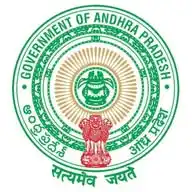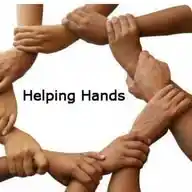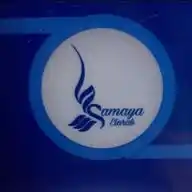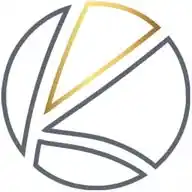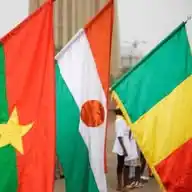
Caracas Chronicles 🫓
728 subscribers
About Caracas Chronicles 🫓
Making Venezuela make sense. Get the latest analyses and stories about Venezuela in English—delivered directly to your phone.
Similar Channels
Swipe to see more
Posts

🫓 *Caracas Chronicles* 👋 Hey, friends and readers in Madrid! 🖋️ Blog editor-in-chief *Rafael Osío Cabrices* will be speaking this *Thursday afternoon* at an event hosted by the *IE School of Politics, Economics and Global Affairs*, exploring how Venezuela’s nation, economy, and political landscape have undergone radical transformation in just a few years. 🌐 The event will be *in Spanish*, and it’s a great chance to *reconnect with Venezuela’s current reality*—or to bring along your international friends who want to understand how we got here. 🎟️ *Attendance is free!* Just make sure to register. 🗓 Thursday, May 29 🕔 5:00 to 7:00 pm 📍 *_Click here to register:_* https://ieconnects.ie.edu/gpaundergradstudents/rsvp_boot?id=300377855

🫓 *Caracas Chronicles* | May 29, 2025 In an escalation of attacks against domestic NGOs, Interior Minister Diosdado CAbello just labeled leading human rights groups Foro Penal, Provea, Médicos Unidos and Coalición por Venezuela as terrorists. 📌 *_Full post on Instagram:_* https://www.instagram.com/p/DKNzRJQo2OQ/?igsh=c2xwdXN3eGF3NGxo

🫓 *Caracas Chronicles* | May 30, 2025 In an opaque and unpopular vote, what stands out isn’t who "won" but how chavismo keeps punishing everyone and rewarding its chosen adversaries. Chavismo is, it turns out, slicing up the National Assembly however it wants and handing out seats to both "alacranes" and the Capriles-Rosales alliance #NowWhatVenezuela 📌 *_Click here to read the full digest:_* https://www.caracaschronicles.com/2025/05/30/rigged-election-results-non-stop-terror-are-still-the-message-in-maduros-venezuela/

🫓 *Caracas Chronicles* | May 27, 2025 Save for now-defunct democratic institutions, Venezuela’s map once again resembles the pre-1989 era, when all 23 governors were handpicked by the president. The National Assembly will again look like a one-party legislature, bar a few odd guests. 🗞️ *_El Feed has all you need to know about the outcome of the May 25 vote. Check it out:_* https://www.caracaschronicles.com/el-feed/wince-like-its-1988/

🫓 Five aides to María Corina Machado held their first press conference since escaping Venezuela in what they call Operación Guacamaya 🦜having spent a year and two months sheltered in the Argentine Embassy in Caracas, surrounded by Maduro agents. 📌 *_Check out their quotes and takeaways in our X thread:_* https://x.com/CaracasChron/status/1926406597099532309?t=AUXvpais9YGuEVb55gWADg&s=19

🐄 *¡La Vaca Mediática continúa hasta el 15 de junio!* 🗓️ ⚡ *_Necesitamos una mano de tu parte: puedes hacer una donación o ayudarnos rotando esta cadena. Sí, tenemos Zelle. Nuestros datos están al final de este mensaje_* 📱 Gracias a las alianzas, la colaboración y la cooperación hemos ganado premios, reconocimientos y más importante aún, nos han recordado que nuestro trabajo es de clase mundial. Hoy, entre 15 medios aliados levantamos la voz para pedir tu apoyo y así seguir haciendo periodismo independiente en Venezuela. En nuestro transmisión en vivo del 17 de mayo se conectaron 31 mil personas de todas partes del mundo y contamos con más de 25 invitados especiales entre periodistas y artistas. Ha sido una iniciativa colectiva y una esfuerzo logístico sin precedentes en Latinoamérica que nos hace sentir súper orgullosos. Te invitamos a hacer tu aporte seleccionando el monto y método de pago, e incluso elegir si quieres apoyar a un medio en particular o a todos por igual. La plataforma es segura y permite hacer aportes de forma anónima. Para pagos vía Zelle o por transferencia bancaria disponemos de un chat por WhatsApp. ❤️ *No importa el monto, cada dólar cuenta. Tu apoyo es esencial para que podamos seguir. Entra a este link y haz tu aporte:* https://vacamediatica.com/?utm_source=caracas_chronicles 💜 *Para donar por Zelle:* Nombre: Apolon Correo: [email protected] Razón: Vaca Mediatica 🙏 _Por favor, envíanos la captura de pantalla con tu aporte_

🫓 *Caracas Chronicles* | June 4, 2025 Cuba teeters on another “special period” and Venezuela braces for a new economic downturn. But with sanctions tightening and isolationism on the rise, old allies may no longer offer the lifelines Havana and Caracas have relied on. Old allies are looking inward, making the regimes fear they might be left hanging out dry. 📌 *_Read the full analysis on our website:_* https://www.caracaschronicles.com/2025/06/04/another-cash-flow-crisis-another-crossroads-for-maduro-and-diaz-canel/

🫓 *Caracas Chronicles* | June 3, 2025 Siscom is an internal communications system run by the Venezuelan Ministry of Communication to distribute messaging and coordinate Maduro’s media campaigns. An unprecedented leak reveals how it operates #LaHoraDeVenezuela. 📌 *_Click here to read the full investigation:_* https://www.caracaschronicles.com/2025/06/03/inside-the-secret-network-powering-maduros-propaganda-machine/

🫓 *Caracas Chronicles* | May 24, 2025 Primero Justicia leader Juan Pablo Guanipa joined the list of dozens of people arbitrarily detained or missing in the last week, ahead of the May 25 regional vote in Venezuela. 📌 *_Instagram post:_* https://www.instagram.com/p/DKAYXs4ISy_/?igsh=MXFmcmR4c2p5MWtmcw==

🫓 *Caracas Chronicles* | May 26, 2025 Instead of turning the page on Edmundo González's victory on July 28, yesterday's vote had the opposite effect: it exposed the landscape of frustration and lacking voter confidence that emerged from the 2024 election fraud. *📌 _Read the full piece on our website:_* https://www.caracaschronicles.com/2025/05/26/how-an-election-meant-to-lie-ended-up-highlighting-the-truth/
